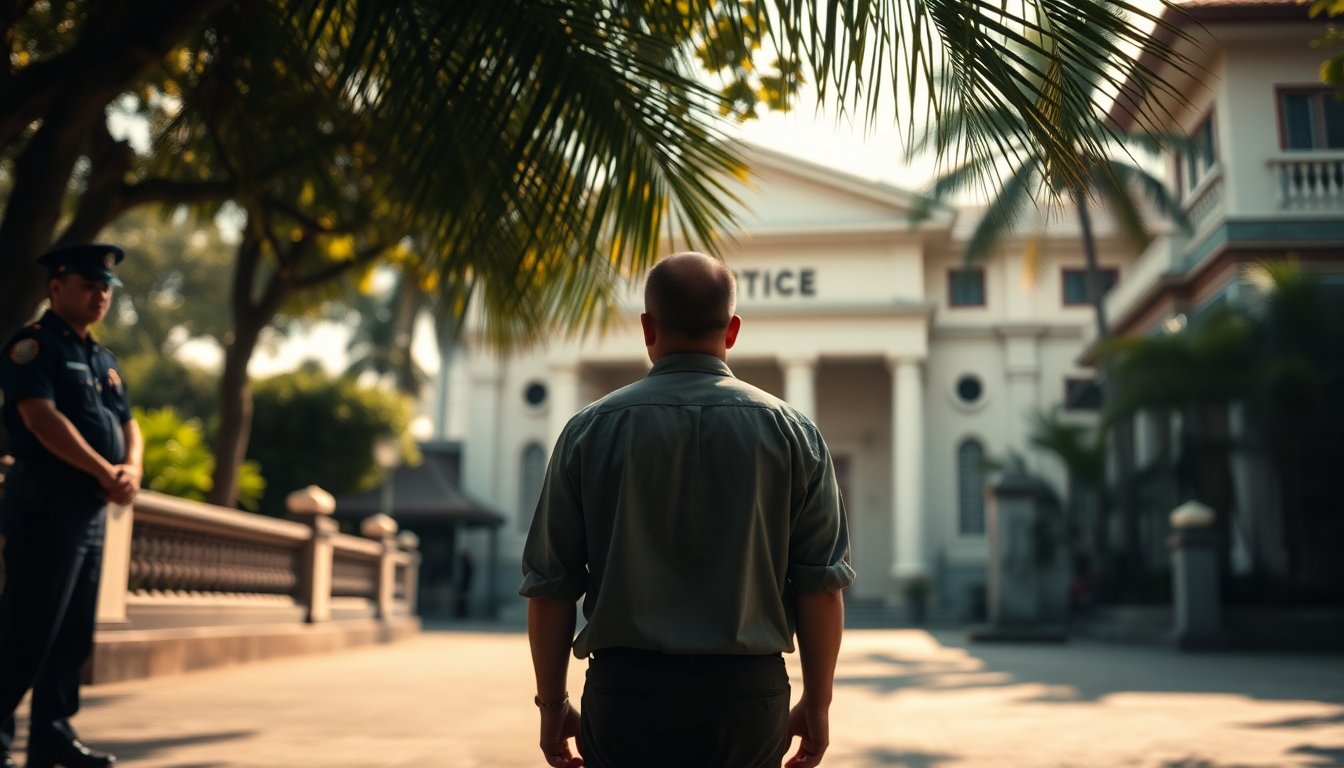Table of Contents
In a significant legal decision on the scenic island of Bali, an Indonesian court has sentenced Ukrainian national Roman Nazarenko to life in prison for his involvement in a major drug trafficking operation. This case underscores a concerning collaboration between individuals from Ukraine and Russia, engaging in illegal activities far removed from the conflict zones of their home nations.
Nazarenko, previously listed as a wanted individual by Interpol, was arrested in December 2024 at Bangkok’s Suvarnabhumi Airport while attempting to flee to Dubai. His arrest followed a police raid conducted seven months earlier at a villa in Bali, where authorities uncovered a sophisticated laboratory dedicated to cultivating marijuana and producing a precursor chemical for ecstasy.
Details of the Drug Operation
During the trial at Denpasar District Court, prosecutors detailed Nazarenko’s significant role in the drug ring. Despite his assertions of being misled into the operation, presiding judge Eni Martiningrum stressed the severity of his crimes, stating, “There is no reason to forgive or justify the defendant; he deserves to be punished commensurate with what he has done.”
The Fallout of Drug Trafficking
Judge Martiningrum expressed concern over the implications of Nazarenko’s actions on Indonesia’s youth, warning that his criminal activities could severely harm the mental health of younger generations. Along with Nazarenko, two Ukrainian brothers, Mykyta and Ivan Volovod, as well as a Russian national named Konstantin Krutz, received 20-year sentences for their involvement in the drug operation. The Volovod brothers were identified as the drug producers, while Krutz handled distribution.
Growing Concerns Over International Crime Collaborations
Authorities are increasingly worried about the emerging trend of cooperation between Russian and Ukrainian nationals in criminal enterprises based in Bali. Marthinus Hukom, head of Indonesia’s National Narcotics Agency, commented on this unusual dynamic, stating, “This is a very unique phenomenon. Two countries that are at war, but here in Bali, their citizens are partners in crime.”
Further investigations revealed that a Russian national, Oleg Tkachuck, is believed to be the mastermind behind the drug ring, yet remains at large. Prosecutors allege Tkachuck financially supported the Volovod brothers in establishing the drug manufacturing facilities. Nazarenko reportedly assisted in recruiting the other convicts, providing necessary materials and overseeing laboratory operations.
The Local Impact of Drug Trafficking
Indonesia is known for its strict drug laws, which impose severe penalties on traffickers, including the potential for the death penalty. The rise in drug-related offenses has raised serious concerns among local authorities, especially as Bali attracts an increasing number of Russian and Ukrainian nationals seeking refuge from the ongoing conflict in their home countries. The influx of Russian visitors to Bali rose dramatically, from approximately 57,860 in 2022 to over 180,215 in 2024.
This disturbing trend of international criminal collaboration amidst ongoing warfare presents significant challenges for law enforcement and raises questions about the effectiveness of current strategies to combat drug trafficking. The case of Nazarenko and his associates serves as a stark reminder of the complexities involved in addressing drug-related issues on a global scale.
As the Indonesian government continues to navigate the implications of this case, the impact on local communities, particularly the youth, remains a critical concern. The judicial system’s response to such crimes will be essential in shaping future strategies to deter drug trafficking and ensure the safety and well-being of the local population.


